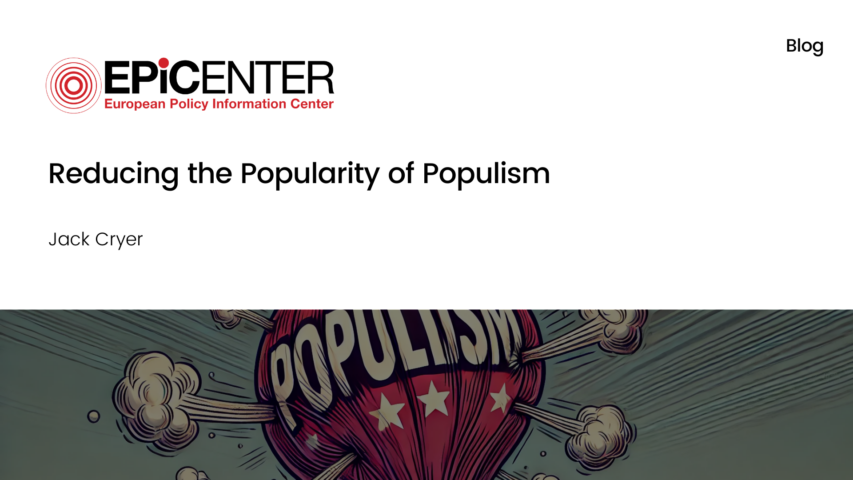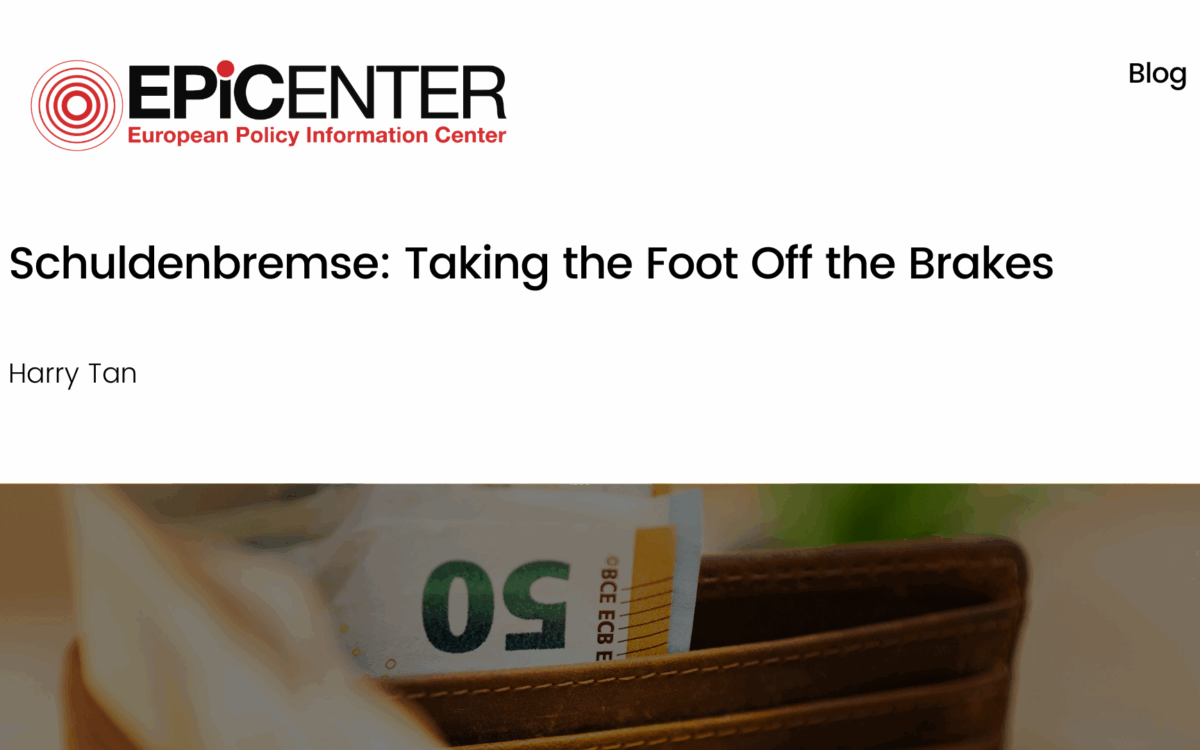Reducing the Popularity of Populism

How to Reduce the Popularity of Populism
Jack Cryer // 4 April 2024
The first part of this essay discussed what populism is and where it came from. The populist mindset is a reactionary one. So long as the same sources of discontent remain, populism will continue to thrive. This appears to be a likely scenario at the moment, but it is not an inevitable one. There is much we can, and should, do.
Political solutions
Reducing the power of the elite
The main economic – and, to a large extent, cultural – origins of populism were the economic, scientific, or cultural ‘elite’ straying from their evidence-collecting remit to the policy-prescribing domain. Solutions can only be found in a return to evidence-based policies that promote growth and limit the ability of the perceived elite to restrict it.
There is room for significant progress to be made here, particularly among those who have felt the impact of globalisation and poor policy and who, therefore, feel the pull of populism the strongest. A new Epicenter paper explores several well-researched recommendations for energy, lifestyle, pensions, and agricultural policy. It can be found here.
Liberal policies boost per capita GDP growth and long-term employment while removing barriers to individuals making decisions about how to improve their lives. The issue with populism is that the will of the people cannot be aggregated into a person, platform, or policy. The only solution is to provide individuals with the necessary frameworks to improve their lives themselves. Time and again, countries around the world have demonstrated that if this responsibility is given back to people, they will use it wisely.
Decentralisation
In some policy domains, the removal of government regulation and interference is not possible either for political reasons or because the government has a legitimate role in the given area. With such issues, decisions should be made at as local a level as possible. Doing so allows diverse groups of people to participate in policymaking, thereby appeasing a wider range of needs and alleviating the concerns of more people. It also means voters will have more skin in the game, as the consequences of the policies they advocate for will be felt only by their community. Faced with these incentive structures, people will make better decisions and will be able to assess policies more critically before and after implementation.
Individual solutions
While such changes to policy encourage grassroots action, coordination, and cooperation, these are top-down solutions, requiring decisions by governments. There are things that politicians as well as us can and should do on an individual basis – an approach which will perhaps be even more effective.
Firstly, individual politicians need to change tracks. The two most common courses of action taken in response to populism at the moment are as follows:
1. Becoming more populist to gain favour with the populists, that is, to increase their voter base.
2. Insulting and criticising populists rather than discussing their ideas to appease their current voter base.
Creating popularity for sound principles
There is a third response that is much more difficult but also much more optimistic and conducive to cooperation across the political spectrum. Ezra Taft Benson, former United States Secretary of Agriculture, said, “Unlike the political opportunist, the true statesman values principle above popularity and works to create popularity for those political principles which are wise and just.”
This can be achieved. Populists – or insert whichever ideological group you consider to be most opposed to your own – will be more open to better ideas if we attempt to understand where they are coming from. It may well be the case that many of their goals will be better met by more liberal policies; indeed, that is my proposition. Nonetheless, even if our goals are incompatible, trying to popularise wise and just principles will always be more productive than either catering to or insulting people who do not see things our way.
Improving communication
A significant and increasingly popular attitude that impedes attempts to popularise good principles is one that involves shying away from political conversations for the sake of avoiding arguments. Many people rightly recognise that too many relationships are being harmed because of arguments about political differences. The solution, however, is not to stop these cross-ideology conversations. Rather, it is to get better at them.
If we impose or self-impose restrictions on such conversations that have the potential to spur disagreements, we only serve to further isolate each party. If we are self-aware enough to recognise when political conversations may be morphing into relationship-harming arguments, then we will be self-aware enough to listen and understand better and steer such a conversation back into constructive territory.
Social media has also played a significant role in exacerbating the rise of populism. Decisions made by experts we have heard of previously are debated, criticised, and ridiculed by millions. Social changes we do not like, which may not even be transpiring where we live, are brought much closer to home via the Internet. Derogatory comments made by political leaders are heard in our living rooms rather than staying within the range of their voices. With information about the ‘winners’ of globalism and economic development all around, it is hard to be content with our lot in life. We must learn that what we see is not all there is and, certainly, is not all that matters.
Going forward
Some of these causes of populism have fairly obvious solutions, while with others it is hard to know where to start. What is sure is that European leaders will find that populism is a much more tameable and human enemy than they once thought, if they think about these three questions sincerely: what is it? where did it come from? how do we stop it? Populists will learn to appreciate and trust leaders again if leaders show a new desire to understand and find solutions to the concerns of populists. If we begin to take steps towards a norm of evidence-based liberal policy and empathetic discourse, a strengthened European democracy will follow.
EPICENTER publications and contributions from our member think tanks are designed to promote the discussion of economic issues and the role of markets in solving economic and social problems. As with all EPICENTER publications, the views expressed here are those of the author and not EPICENTER or its member think tanks (which have no corporate view).



